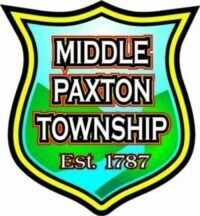Local recycling programs vary; the collection systems, lists of acceptable materials, and local rules are all determined by the entity that operates the program.
The Pennsylvania Department of Environmental Protection (DEP) has released a simple guide to help residents and businesses understand recycling in Pennsylvania called “Guidelines for Recycling in Your Community.”
Please see the Press Release below –
FOR IMMEDIATE RELEASE
November 15, 2021
DEP Releases “Guidelines for Recycling in Your Community” Booklet on America Recycles Day to Assist Pennsylvanians and Support Local Recycling Programs
Harrisburg, PA – The Pennsylvania Department of Environmental Protection (DEP) has released a simple guide to help residents and businesses understand recycling in Pennsylvania called “Guidelines for Recycling in Your Community.” The booklet helps Pennsylvanians to recycle correctly by finding recycling programs in their local area, learning their local rules, and following them to maximize the social, environmental, and economic benefits of recycling.
The booklet is available to download at dep.pa.gov/recycling. Print copies of the booklet will be distributed at upcoming public events such as the 2022 PA Farm Show and will be available through DEP’s six regional offices (dep.pa.gov/regions).
“DEP is committed to supporting successful recycling programs in local communities, and this new booklet will help residents to better understand the rules of recycling and how to connect with local recycling opportunities,” said DEP Secretary Patrick McDonnell. “We encourage everyone to find ways to reduce their waste, reuse materials, recycle what they can, and properly dispose of what they must.”
Recycling generates tremendous environmental and financial benefits for Pennsylvania. Because of recycling, nearly 10 million metric tons of carbon dioxide emissions are avoided every year, or the equivalent of removing 2.15 million (or 25% of) vehicles from Pennsylvania roads annually.
“This booklet will help eager-to-recycle Pennsylvanians cut through any confusion that may arise when encountering differences between and changes within local recycling programs,” said McDonnell. “It will make them better-educated and more confident recyclers, ultimately benefiting Pennsylvania’s environment and economy for future generations.”
According to a 2017 Recycling Economic Impact study, the recycling marketplace contributed $22.6 billion to Pennsylvania’s gross state product, directly employed over 66,000 people, and contributed to almost 110,000 indirect and induced jobs in 2015. Every dollar of direct activity was matched by another dollar of combined indirect and induced value added.
DEP has overseen Pennsylvania’s statewide recycling program since 1988, when the Municipal Waste Planning Recycling and Waste Reduction Act, known as Act 101, took effect. Among other measures, Act 101 provides the framework for municipal curbside recycling programs, funding for local recycling programs, countywide planning for the management of municipal waste, and more.
While DEP administers the statewide recycling program, all recycling in Pennsylvania is handled at the local level. Many Pennsylvania municipalities and counties manage local recycling programs, complemented by recycling services offered by private and non-profit organizations. Local recycling programs vary; the collection systems, lists of acceptable materials, and local rules are all determined by the entity that operates the program.
MEDIA CONTACT: Megan Lehman, meglehman@pa.gov, 570-327-3659
###

